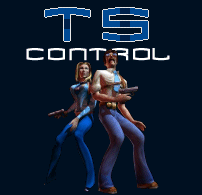About
Photosensitive Seizures
A very small percentage
of people may experience a seizure when exposed to certain visual
images, including flashing lights or patterns that may appear
in video games. Even people who have no history of seizures
or epilepsy may have an undiagnosed condition that can cause
these "photosensitive epileptic seizures" while watching
these video games.
These seizures may
have a variety of symptoms, including lightheadedness, altered
vision, eye or face twitching, jerking or shaking of arms or
legs, disorientation, confusion, or momentary loss of awareness.
Seizures may also cause loss of consciousness or convulsions
that can lead to injury from falling down or striking nearby
objects.
Immediately stop playing
and consult a doctor if you experience any of these symptoms.
Parents should watch for or ask their children about the above
symptoms - children and teenagers are more likely than adults
to experience these seizures.
The risk of photosensitive
epileptic seizures may be reduced by sitting rather far from
the television screen, playing in a well-lit room, using a smaller
television screen, and not playing when you are drowsy or fatigued.
If you or any other
member of your relatives have a history of seizures or epilepsy,
consult a doctor before playing.
Other Important
Health and Safety Information The Xbox Instruction
Manual contains important health and safety information that
you should read and understand before using this software.
Avoid
Damage to Your Television
Do not use with
certain televisions. Some televisions, especially
front- or rear-projection types, can be damaged if any videogames,
including Xbox games are played on them. Static images
may presented during the normal course of game play may "burn
in" to the screen, causing a permanent shadow of the static
image to appear at all times, even when video games are not
being played. Similar damage may occur from static images
created when placing a video game on hold or pause. Consult
your television owner's manual, contact your television dealer
or the manufacturer to determine if video games can be played
safely on your set.
Unauthorized copying,
reverse engineering, transmission, public performance, rental,
pay for play, or circumvention of copy protection is strictly
prohibited.



![]()


